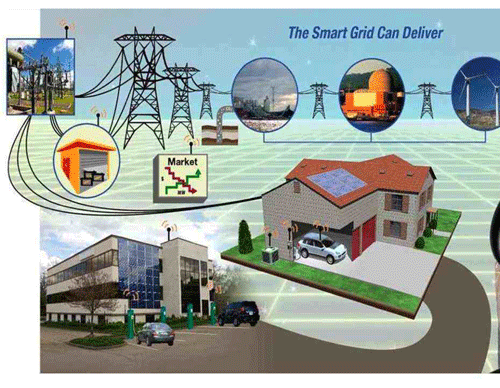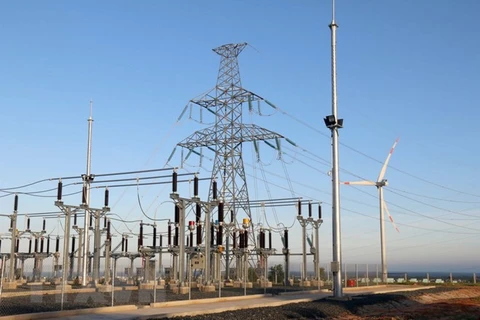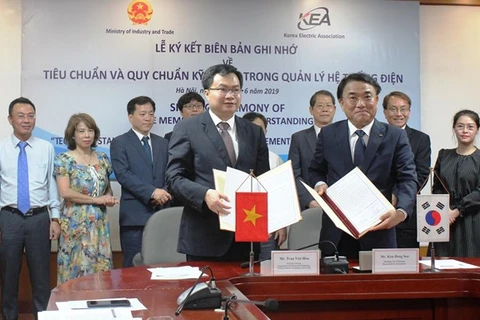 At the event (Source: http://www.vneconomictimes.com/)
At the event (Source: http://www.vneconomictimes.com/)
Hanoi (VNA) – The Smart Grid Week Vietnam 2019 has been underway in Hanoi since December 2, featuring a series of conferences and workshops for government officials, national and international professionals and partners as well as associations.
Lasting until December 5, the week provides a chance to experts and business delegates to discuss trends and visions for a sustainable power system in Vietnam in the future, exchange knowledge and experience on smart energy solutions that enable high proportions of renewable energy and energy efficiency, and showcase emerging innovative technologies and applications for the power system of the future.
The Electricity Regulatory Authority of Vietnam (ERAV) at the Ministry of Industry and Trade (MoIT) and the German Corporation for International Cooperation (GIZ) in Vietnam are hosting the week. It is part of the Smart Grids for Renewable Energy and Energy Efficiency Project, which is being jointly implemented by ERAV and GIZ.
At the opening ceremony, ERAV’s Director General Nguyen Anh Tuan noted that Vietnam has seen significant growth in its power sector, which has made an important contribution to the country’s industrialization, modernization, and socioeconomic development.
Developing a smart grid is the right step forward for Vietnam and after nearly seven years of implementation and application of state-of-the-art technologies, the quality and reliability of the country’s power supply have improved.
Along with a general trend towards clean and renewable energy development, the application of smart grid technologies is an effective solution to integrate and operate new and renewable energy sources stably and smoothly as well as promote development and increase the proportion and efficient use of renewable energies, thereby contributing to environmental protection, national energy security, and sustainable development, Tuan said.
Sebastian Paust, Head of Development Cooperation at the German Embassy in Vietnam said Vietnam has seen impressive growth in the share of renewable energies in electricity production this year. However, to reach a higher share of renewable energy, Vietnam should take more measures, especially supporting the integration of solar and wind energy in the grid, he said, adding that in Germany, nearly half of electricity comes from renewable sources (standing at 47 percent in the first half of 2019), mostly from wind and solar energy.
“At this event, we would like to exchange international experience in measures and solutions to support a higher share of solar and wind energy in Vietnam,” he said.
After the official opening day, the second day of the Smart Grid Week, entitled “Power System Innovation Day”, focused on emerging power system technology solutions for a modern and sustainable future power system.
On December 4, named the “Smart Grid Symposium Vietnam” day, seminars will be held for knowledge exchange between power system experts and academics on the topics of flexibility options for high shares of renewable energy, the impact of renewable energy on the power system, and enabling a smart grid with regulatory frameworks.
Entitled “Future Lab: Internet of Energy”, the final day (December 5) will feature open discussions on visions for the power system of the future./.






















